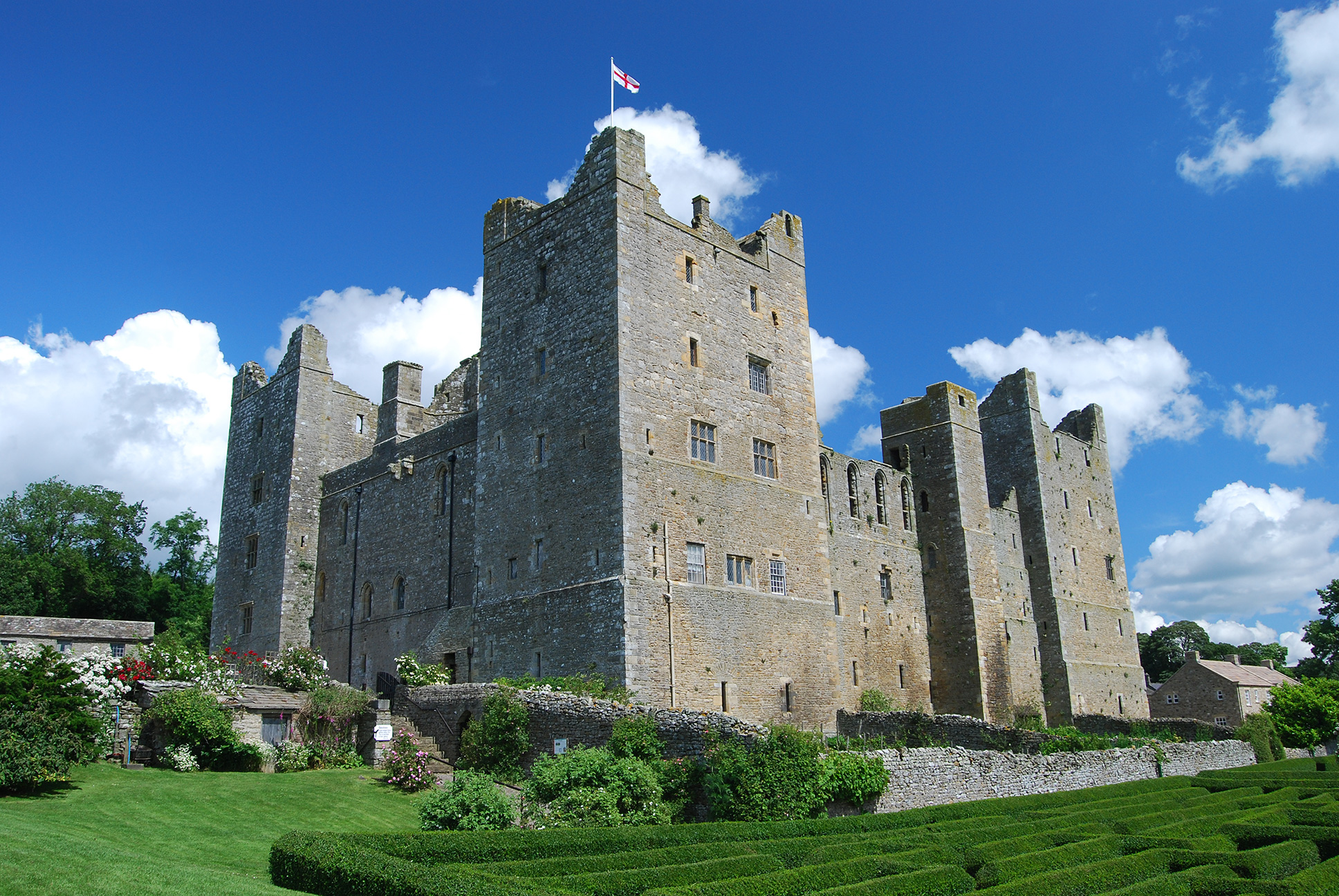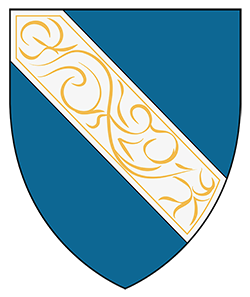Richard le Scrope - 1st Baron Scrope of Bolton
Richard le Scrope was a soldier, courtier, and Knight of the Shire who would later become a baron and Lord Chancellor, serving Richard II of England. He was born around 1327 in Bolton, Wensleydale, in North Yorkshire, England. His father was Henry le Scrope, Lord Chief Justice of England, and his mother was Margaret de Musgrave.

In 1344, Richard succeeded his elder brother William in their father's estates. He married Blanche de la Pole sometime before February 1352, and they had four sons: William, Roger, Stephen, and Richard.
Richard found his first success as a soldier at the Battle of Neville's Cross, where he was knighted on the battlefield and then joined the King before heading to Calais. He was active for 40 years, fighting in France or Scotland for the English.
He attached himself to the service of John of Gaunt, Duke of Lancaster. This association went far to determine his part in the critical domestic politics of the closing years of Edward III's reign.
In 1378, Richard le Scrope was appointed Lord Chancellor. He tried to reduce Richard II's extravagant spending but resigned in 1380 after the government collapsed due to military failures in France. During the Peasants' Revolt, the rebels beheaded his successor, Archbishop Sudbury, and le Scrope became Lord Chancellor again.
Richard II relieved him of this office in 1382 due to nonconformity. Le Scrope refused to seal Richard's lavish grants. When royal messengers demanded the great seal, he would only surrender it to the King. He told Richard that he would never again take office under him.
After that, le Scrope focused on building Bolton Castle in Wensleydale, for which he was granted a license to crenelate in 1379. Bolton Castle was completed in 1399.
Richard le Scrope's son, William, was executed in 1399 by King Henry IV. William had defended the realm, along with some others, during Richard II's absence when Henry Bolingbroke, Duke of Hereford, who had been exiled, chose to invade England. William le Scrope was captured at Bristol Castle when it was surrendered to Henry. He was executed without trial at the castle, and his head was carried to London and displayed on London Bridge. When Henry Bolingbroke became King Henry IV, the sentence against William le Scrope was confirmed, and all of the le Scrope estates were forfeited to the crown.
Despite this, Richard le Scrope was still highly regarded as a statesman and soldier by Henry IV, and the King was moved to confirm that le Scrope's lands and titles would not be forfeited despite what had happened with his son.
Richard le Scrope spent the last few years of his life on his estate in Pishobury, Hertfordshire, where he died on May 30th, 1403. He was buried at Easby Abbey in Richmond, North Yorkshire, England. His title as Baron le Scrope of Bolton passed to his second son, Roger le Scrope.
